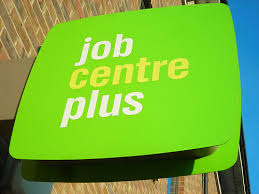
Unemployment increased marginally in Scotland by 1, 000 between February and April, according to the ONS.
Figures show that 165, 000 people were out of work. The Scottish unemployment rate is 5.9%, above the 5.5% for the whole of the UK.
The labour market statistics also show employment in Scotland increased by 14,000 over the three months February to April. The number of those in employment in Scotland now stands at 2,624,000.
'Growing Economy'
The Secretary of State for Scotland David Mundell said: “I want to ensure that every part of Scotland benefits from a growing UK economy and that everyone who works hard gets the opportunities they need to succeed. Our long-term economic plan gives working people the chance to get on, at every stage of their lives and make the most of the jobs and opportunities that are being created across the country.”
“These statistics today show the creativity, resilience and hard work of so many people and businesses in Scotland. The increase in employment sees the number of people in Scotland in work reach a near record high. Over the past year employment in Scotland has increased by 53,000 and unemployment has fallen by 19,000. The latest economic forecasts also confirm growth will continue this year and next with more jobs being created and wages continuing to rise.”
'Showing Improvements'
Scottish Cabinet Secretary for Fair Work, Skills and Training Roseanna Cunningham said: “Today’s figures continue to show improvements in youth and women’s employment, pushing us to the forefront of work to help people into jobs across Europe. Youth unemployment is at its lowest level and rate in six years and female participation in the labour market continues to improve.
“There are also now 74,000 fewer Scots unemployed since the peak of the recession in 2010, great news for the economy, which is also making a difference to the lives of individual Scots. Today’s news follows a range of activity to support more people into jobs including ensuring our colleges are fully focused on the employability of young people, highlighting the importance of apprenticeships and improved options on childcare to help more women back in the workforce."

Ms Cunningham said there are areas where further work is needed, particularly as recent quarters have seen small rises in unemployment. Much of that change appears to have been caused by people - mostly women re-entering the labour market following the recession, and as such, the labour market is seeing an influx in the numbers of people seeking jobs. We will continue to use all the levers at our disposal to help them into employment, and drive the economy forward.
“There is absolutely no room for complacency when it comes to continuing to create high quality employment opportunities across the country and through the work of the Smith Commission and progress on the Scotland Bill, we will continue to push for powers over welfare and taxation that are fit for a modern Scotland.”
'Signs Of Growth'
Commenting on the news that the Scottish rate of unemployment was unchanged at 5.9% in the three months to April, Liz Cameron, Chief Executive of Scottish Chambers of Commerce, said: “Although the unemployment rate has not changed, there were more than 13,000 jobs created in April and the number of people in employment has now increased by over 78,000 in the past year. These are impressive results for Scotland’s economy.
“After a subdued start to the year, there are now signs that growth in the Scottish economy may be accelerating again. A number of reports over recent weeks have pointed towards a strengthening jobs market, with businesses competing hard for the available skills. Together with some signs of increased business investment, this creates a landscape better equipped to sustain growth and the creation of new employment opportunities.
“However, we do need to see a strong message from the Chancellor in his Summer Budget that the UK Government is committed to supporting the potential for growth in key sectors. Our tourism sector needs to be as competitive as it can be internationally and we would welcome a move by the Chancellor to reduce the level of VAT applied to tourism and hospitality activities, as a positive move forward to level the playing field between the UK and other European countries.”
'Another mixed bag'
Grahame Smith, Scottish Trades Union Congress (STUC) General Secretary said the results are "another mixed bag" which emphasise that the recovery in the labour market is "a slow and uneven process."
The small increase in unemployment and rise in employment are attributable to another fall in economic inactivity which is now at a historically low level." He said.
"With unemployment, as measured by both level and rate, still significantly higher than before the recession, the key test of the strength of the Scottish labour market over the coming year will be whether people leaving inactivity manage to keep finding jobs.
"The STUC has ongoing concerns over the quality and sustainability of the new jobs being created. Although the real terms increase in wages across the UK is encouraging, there is a very long way to go until wages recover their pre-recession value".


 10°C
10°C
 10°C
10°C
 9°C
9°C